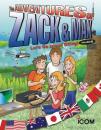-
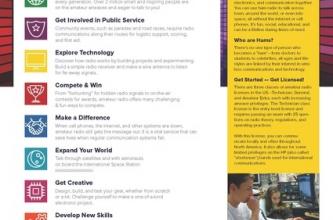
Adventure is Waiting!
ARRL's flyer presents "Why Give Amateur Radio a Try" Download it here: -
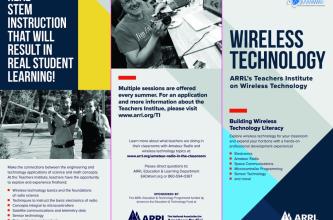
ARRL Teachers Institute
The ARRL Teachers Institute is a great way to get youth engaged. Teachers are trained for a week to incorporate wireless technology into their classrooms... and it is expenses paid!
The How and Why of Amateur Radio Youth Outreach
Steve Goodgame, K5ATA hosted an ARRL Forum at Hamvention on the topic of "The How and Why of Youth Outreach." There was an interactive discussion with the forum attendees as Steve shared his passion and vision for the ARRL Education and Learning Department and Youth Outreach. Josh Nass, KI6NAZ, of the popular YouTube channel, Ham Radio Crash Course recorded the forum and has it available HERE.
A Hundred Kids A Day: Ham Radio at Arizona Science Center
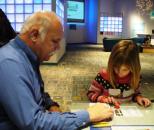
Read more about how local hams share the traditional and the contemporary of ham radio with young visitors.
Teaching Ham Radio at Summer Camp
Since 1999, Joel Colman, NO5FD, has been introducing Amateur Radio to youngsters at the Henry S. Jacobs Camp in its residential summer program in Utica, MS. Colman meets with campers who choose the radio elective for one hour, three to four times a week. While he says it’s not enough tim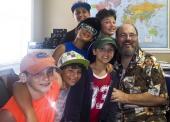 e to teach a licensing course, it does allow Colman to teach them about Morse code, the phonetic alphabet, making QSOs, and even a little contesting.
e to teach a licensing course, it does allow Colman to teach them about Morse code, the phonetic alphabet, making QSOs, and even a little contesting.
Read more about his approach to engage kids and show them the fun Amateur Radio can offer.
Resources
-
Engaging Kids at Hamfests and Public Events
"You'll have some fun at the hamfest, it will just take some preparation. The object is to have some hands-on activities that will draw the kids in. " -- Mark Spencer WA8SME
A scavenger hunt. Give the kids a map of the U.S. with the call districts. Have them go around the hamfest and find a ham call from each of the call districts. And/or have a list of ham radio questions that the kids have to ask the participants, i.e., what is your class of license?, when were you first licensed?, what band do you work the most? That kind of thing. Then there are some small prizes for returning the questionnaires.
On the air. Have a two meter radio on a simplex frequency and someone on the other end monitoring (that is good at talking with kids). Have the kids make a contact and then give them a certificate for making their first contact along with a QSL card.
Morse code. Set up a computer with a CPO and key attached to the sound card. Have a code interpreter program running on the computer like CWGet (a free program). The program displays the code as it is being sent. It doesn’t take long for the kids to send their names and short messages. Another good addition would be to have a receiver running and having actually CW being heard to show the kids that it is actually still used today (and you could copy the code on a white board as people walk by, gives you a chance to talk about the code within the code (WX, QSL, etc.)). Ask the kids to practice sending their names in code displaying their names on the computer screen. You'll have to chase away the adults on this one.
Morse code bracelets. Set up a craft area where you use different sized, or color, beads (for dots, dashes, spaces) and have the kids make a name bracelet in Morse code.
Fox hunting. You can set up a fox hunting activity with a hidden transmitter someplace in the area and have the kids in teams try and find the transmitter.
Building activity. You can get some paint stirrers from the local hardware store, some buzzers, and batteries and have the kids make their own CPO. Here’s a picture of the key that they can make. Connect the wires to the sticky foil and you have a good CPO. Have the kids send messages to each other using their CPOs.
-
Pete Kemp KZ1Z , retired teacher and recipient of the Herb S. Brier Instructor of the Year Award, offers some great advice on setting your expectations and getting organized to work with a school classroom and youth groups. Read More
-
Prime kids for a CW contest with text!
But first they'll need to learn Morse code. Here are some hands-on activities that can engage kids of all ages and introduce them to one of the cool tools long-enjoyed by hams.
Learn More
-
JOTA
Jamboree on the Air allows kids to get a feel for what Amateur Radio is all about. Learn More
-
Scouting
Boy Scouts can incorporate Amateur Radio into their quest for badges, and fun! Learn More
-
Classrooms
Amateur Radio is a great tool for learning--and fun-- in the classroom. Find out how to introduce Amateur Radio to your local school. Learn More
-
Kids Day
Kids Day is a prime opportunity to introduce kids to Amateur Radio. Learn More





